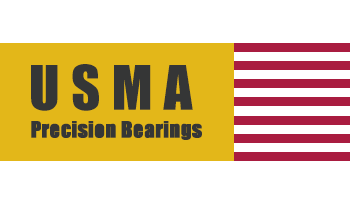NEWS
DEVELOP BY TECHNOLOGY,SURVIVE BY QUALITY
USMA Bearing Manufacturers Navigate Trade Turbulence: Strategic Shifts Amid Escalating Tariffs
Views: 2 Author: Site Editor Publish Time: 2025-06-19 Origin: Site











USMA Bearing Manufacturers Navigate Trade Turbulence: Strategic Shifts Amid Escalating Tariffs
June 19, 2025
American bearing manufacturers face a dual reality of market protection and supply chain upheaval as the Trump administration’s sweeping tariff reforms reshape global trade dynamics. The industry braces for compounded cost pressures despite short-term domestic advantages.
Tariff Shields and Cost Squeezes
The U.S. "baseline tariff" regime—a 10% universal levy effective April 5, 2025—now layers "tiered parity tariffs" targeting specific nations. For bearings, critical raw materials like specialty steels from China face a 54% effective duty (20% existing + 34% parity tariff), while imports from Vietnam and the EU incur 46% and 20% respectively. Although this shields U.S. producers from low-cost competition, it simultaneously inflates production expenses. As noted by industry analysts, "Global supply chains face domino effects," with Mexican-manufactured components containing Chinese materials now subject to retroactive tariffs
Supply Chain Reengineering Accelerates
Nearshoring Components: Shifting raw material sourcing from China and Vietnam to Mexico and Canada, leveraging their sub-1% tariff rates under USMCA
Domestic Value-Add: Increasing R&D spending on advanced ceramics and polymer composites to reduce rare-earth dependencies
Trade Compliance Overhauls: Rigorously auditing suppliers to avoid transshipment penalties, especially after U.S. Customs tightened origin rules for ASEAN-sourced goods
Sector Outlook: Resilience Amid Persistent Headwinds
While U.S. bearing producers gain temporary breathing room from import competition, long-term challenges loom. The CEPR estimates global trade volumes could contract by 8.5% under full tariff-retaliation scenarios, disrupting highly integrated sectors like automotive bearings. Meanwhile, inflationary pressures mount—U.S. core PCE is projected to rise 2.5%-3.2%, squeezing industrial buyers
"Tariffs are a double-edged sword," acknowledges James Keller, CEO of Boston Bearing Group. "We’ve reshored 30% of our forging capacity since April, but alloy costs are up 18%. Our focus now is vertical integration—from smelting to finishing—to control margins." The firm recently secured DOE grants to develop rare-earth-free bearings for wind turbines, aligning with domestic energy incentives

